Story and photos by Jo Mathis/AAPS District News Editor
Stay hydrated.
That’s a message school nurses want to impress upon AAPS students. And the district’s partnership with Project Healthy Schools (PHS) is helping make sure that happens.
Using a grant from Albert Berriz, CEO, and co-owner of the McKinley Companies, Project Healthy Schools recently purchased water bottle filling stations for Tappan, Slauson, Forsythe, Scarlett, and Clague middle schools.
“Special gifts like this don’t happen very often, so when they do we try to invest that money in a smart, evidence-based way,” says PHS Wellness Coordinator Jana Stewart. “In this case, water bottle filling stations were an important investment that could continue to support healthy habits in students for years to come. One of the goals we promote at Project Healthy Schools is to choose less sugary foods and beverages, so we encourage students to reach for healthy beverages such as water. We know students aren’t drinking enough. Stations like this are new and exciting and generate interest. So this type of purchase checks a lot of boxes for us.”
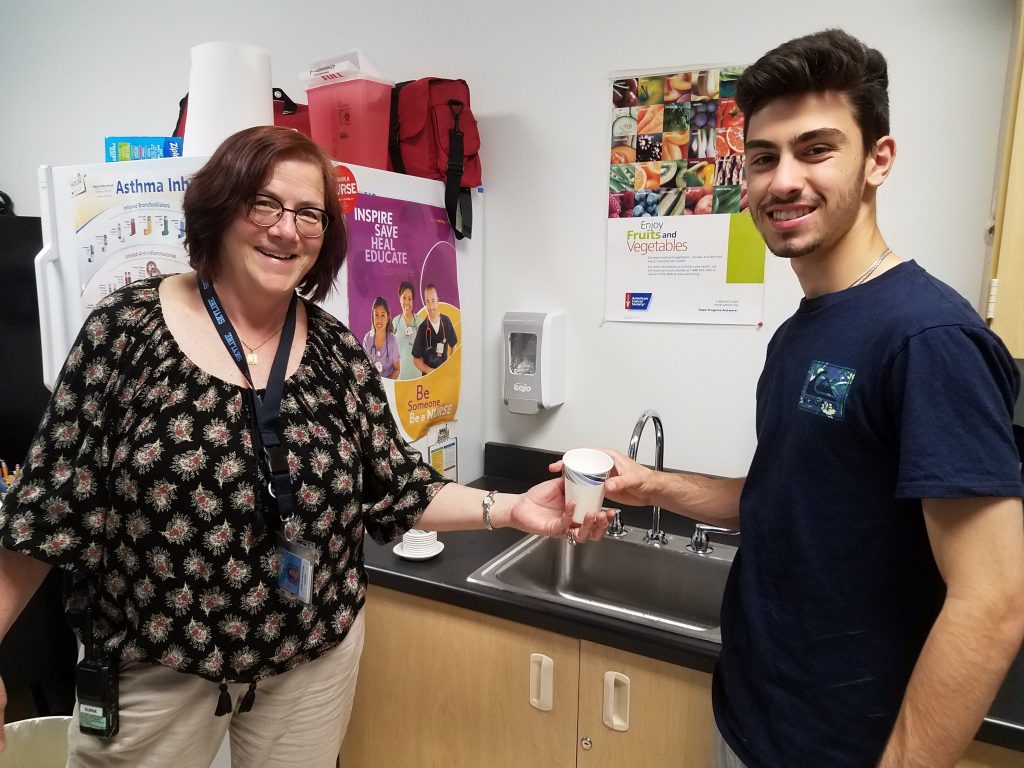
These purchases are applauded by AAPS school nurses because students who don’t drink enough water can be affected in several ways, says AAPS school nurse Kristin Mahler, who works in the Skyline High School clinic.
“Mild dehydration can cause headaches, irritability, reduced cognitive functioning, and poorer physical performance,” she says. “The first question nurses—and seasoned OPs and teachers—ask when a student presents with a headache, is, `How much water have you had today?’”
Mahler supports the AAPS’ Wellness Committee’s efforts with PHS and hopes the drink-more-water campaign will go even further next year.
Project Healthy Schools is a community-University of Michigan Health System (UMHS) collaborative which provides a school-based program to reduce childhood obesity and its long-term health risks. Focusing primarily on sixth grade students, PHS aims to stem the tide of this epidemic by:
- teaching youth healthy habits
- developing healthy school environments
- creating an infrastructure that supports program sustainability and replication

Berriz said that he and his wife, Paula are thrilled to fund Project Healthy Schools’ efforts in AAPS.
“The great work Project Healthy Schools is carrying out in the Ann Arbor Public Schools, and throughout Michigan, is truly transformational for our youth,” said Berriz. “Teaching our kids how and why they should make the right choices about what they eat and why they should stay in motion is as important as anything else we can teach them growing up. We are arming them with the skills to live a positive, strong, balanced and healthy life.
PHS is U-M/community collaboration that was founded in 2004 at Clague Middle School and grew from there into a state-wide program. All AAPS buildings serving grades 6-8 are served by PHS.
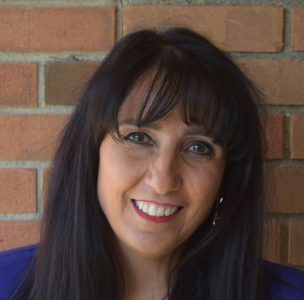
AAPS Wellness Coordinator Angela Demetriou says that Project Healthy Schools has opened doors by teaching students to choose produce, bringing farmer’s markets into the schools, and in other ways helping her introduce aspects of wellness into the middle schools.
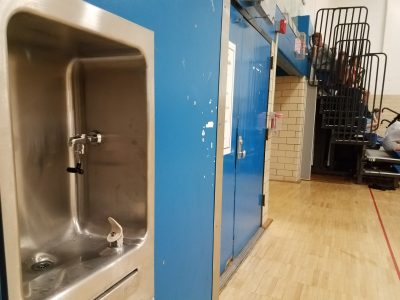
“I’ve gone to the schools, and I see the kids with their water bottles, filling them up to drink water with their lunch which is really important,” she said.
It’s particularly important for middle school students to learn healthy habits, Stewart says.
“By age 12 or 13, students form eating and physical activity habits that can last into adulthood,” said Stewart. “We want the habits they’re forming now to be healthy. If we can create an environment in middle schools that supports and promotes health, students will be more likely to practice healthy habits as adults.”
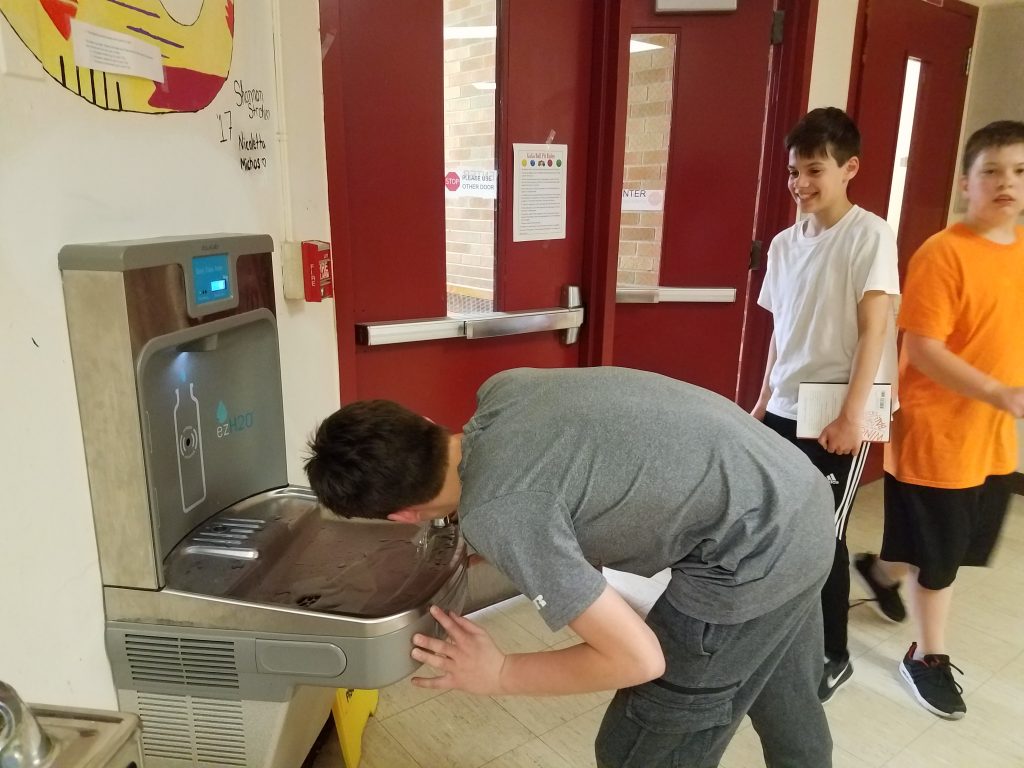
PHS programs go far beyond an emphasis on hydration.
A regular activity, for instance, is taste tests in the cafeteria featuring local produce.
“Farm-to-school activities are a great way to teach health in a way that connects students with their identity, culture, and geography,” says Stewart. “I’ve taught students in this district who think chocolate milk comes from brown cows and can’t identify a bell pepper—so there’s definitely a disconnect from our food and how it’s grown, even in Ann Arbor. Tastings, gardens, and related events expose students to fresh fruits and vegetables in a memorable, fun, and tasty way.”
Parents are an important piece of the puzzle, says Stewart, who notes that students who discuss what they learned during PHS lessons with a parent or guardian have significantly greater improvements in their health behaviors than students who do not share what they learned.
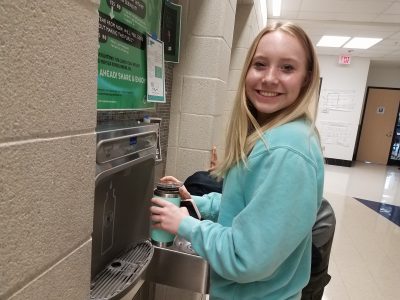
“So one of the very best things that parents can do is engage their child on the topic,” she says. “Ask what they’re learning, and brainstorm ways to practice healthy habits as a family. Maybe that means setting a goal to walk after dinner as a family, or starting a small garden, or dedicating a drawer in the fridge to ready-to-eat fruit and vegetable snacks. Whatever the goal may be—make it concrete, and do it as a family.”

“If we can create an environment in middle schools that supports and promotes health, students will be more likely to practice healthy habits as adults.” True. Glad more schools are promoting healthy habits within their community.
zeal energy drink